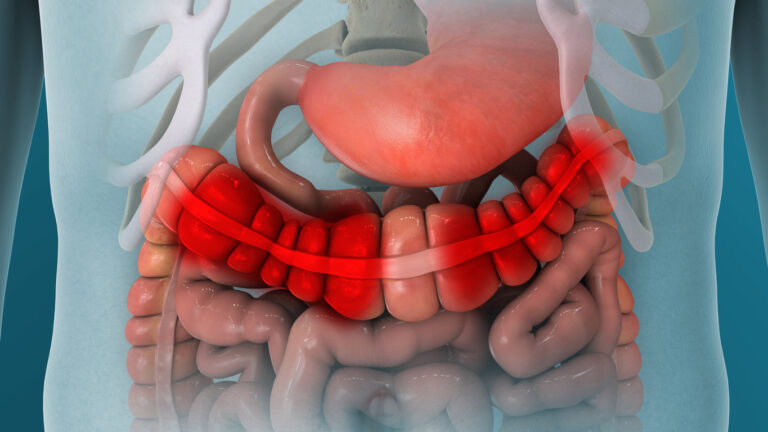
An IBS flare-up refers to a period during which the symptoms of Irritable Bowel Syndrome (IBS) become more intense and challenging to manage. Common flare-up symptoms include abdominal pain, bloating, gas, diarrhea, and constipation.
The severity and duration of these flare-ups can vary from person to person and can be triggered by certain foods, stress, hormonal changes, or other environmental factors. Understanding the specific triggers of one’s IBS symptoms can be critical in managing and reducing the frequency of these uncomfortable episodes.
Understanding these common triggers can help individuals with IBS take proactive steps to manage their condition more effectively.
When a person is under stress or experiencing anxiety, the body’s response can include alterations in gut motility, increased inflammation, and changes in the gut microbiota, all of which can exacerbate IBS symptoms.
Techniques such as mindfulness, cognitive-behavioral therapy (CBT), and stress management practices like yoga or meditation can be effective in alleviating stress and potentially reducing the frequency and intensity of IBS flare-ups. Understanding the link between emotional well-being and digestive health is essential for individuals seeking comprehensive management of their IBS symptoms.
Diet plays a pivotal role in managing IBS, particularly concerning constipation-predominant IBS. Certain foods can exacerbate constipation and make managing symptoms more challenging.
Low-fiber foods like white bread, rice, and processed snacks can contribute to hard, difficult-to-pass stools. Dairy products like cheese and milk may also be problematic for some individuals, particularly those with lactose intolerance. Insufficient hydration can exacerbate constipation, as adequate water intake is essential for regular bowel movements.
The Low FODMAP diet is a popular and evidence-based approach that has shown significant promise for many individuals with IBS. This diet involves reducing the intake of specific carbohydrates that are poorly absorbed in the small intestine and tend to ferment in the colon, leading to gas, bloating, and discomfort.
Key elements of an IBS-friendly diet include emphasizing high-fiber foods like fruits, vegetables, and whole grains while avoiding common trigger foods such as fatty or fried foods, caffeine, alcohol, and artificial sweeteners. Additionally, incorporating probiotics, beneficial bacteria, can help maintain a healthy gut microbiome and reduce symptoms.
Adequate hydration is also crucial, as it helps maintain regular bowel movements and prevents constipation. Eating smaller, more frequent meals rather than large portions can also aid in digestion and reduce the likelihood of flare-ups.
Hormonal fluctuations during the menstrual cycle can significantly impact IBS symptoms, making them more pronounced for many women. Estrogen and progesterone levels rise and fall throughout the cycle, influencing gut motility and sensitivity. During the luteal phase, which occurs after ovulation and before menstruation, increases in progesterone can lead to slower digestive transit time, potentially exacerbating symptoms of bloating and constipation.
Conversely, the onset of menstruation, marked by a drop in both estrogen and progesterone, can trigger diarrhea and increased abdominal pain for some women. Understanding the connection between hormonal changes and IBS can help women predict potential flare-ups and manage their symptoms more effectively. Techniques such as dietary adjustments, stress management, and hormone therapy may be considered under the guidance of a healthcare provider to alleviate menstrual-related IBS symptoms.
Antibiotics, for example, can disrupt the balance of gut bacteria, potentially causing diarrhea or other digestive issues in individuals with IBS. Nonsteroidal anti-inflammatory drugs (NSAIDs), like ibuprofen or aspirin, may irritate the gastrointestinal tract and lead to increased abdominal pain or discomfort.
Opioid medications, used for pain relief, can slow down gut motility and exacerbate constipation, which is particularly problematic for those with constipation-predominant IBS. Additionally, certain antidepressants, particularly those that affect levels of serotonin in the gut, can alter bowel movements and contribute to IBS symptoms.
Another possible trigger is irregular eating habits, such as skipping meals, eating large meals, or eating too quickly, which can disrupt digestion and lead to gastrointestinal discomfort.
Sleep disturbances and poor sleep quality can also heighten IBS triggers, as the body’s rest and repair processes are compromised. Some individuals have also reported environmental factors like extreme temperatures, weather changes, and high altitudes as possible triggers.
Of course, physical inactivity or a sedentary lifestyle can contribute to the severity of symptoms, as regular exercise promotes healthy digestion and reduces stress levels. By recognizing these additional triggers, individuals with IBS can make informed lifestyle changes to manage their condition better and improve their overall well-being.
Individuals with Irritable Bowel Syndrome (IBS) must know when to seek medical advice to ensure they are effectively managing their condition. Suppose you experience severe or persistent symptoms, such as intense abdominal pain, significant changes in bowel habits, unintentional weight loss, or signs of bleeding. In that case, it’s essential to consult your doctor promptly.
Additionally, professional guidance is recommended if over-the-counter remedies and lifestyle modifications are not providing adequate relief. Some situations may require more specialized interventions, such as prescription medications, dietary advice from a registered dietitian, or mental health support for stress and anxiety management. A healthcare provider can thoroughly evaluate, rule out other conditions, and help tailor a treatment plan that addresses your specific symptoms and needs.
As expressed, there are many factors that play into IBS. If you have a family history of IBS, then reach out for more information and visit Allied Digestive Health.
For Your Visit
Emmons Ave – Main Office
P: 718-368-2960
F: 718-368-2249
2211 Emmons Ave
Brooklyn, NY 11235
Mon – Fri: 9:00AM – 6:00PM
Sat Closed
Sun: 10:00AM – 5:00PM
Greater NY Endoscopy Surgical Center
P: 718-954-3535
2211 Emmons Ave
Brooklyn, NY 11235
Open 7 days a week
Bay Ridge
P: 718-833-5050
370 Bay Ridge Parkway
Brooklyn, NY 11209
Brighton
P: 718-854-5100
2952 Brighton 3rd Street
Suite 102
Brooklyn, NY 11235
McDonald Ave
P: 718-833-5050
446 McDonald Ave
Brooklyn, NY 11218-2212
© All Rights Reserved